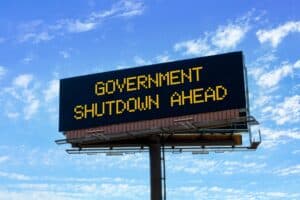If the bullet had flown higher, it would have hit Travis Good in the head.
After a military patrol in Afghanistan that took fire, Good checked his backpack. There he found a small hole, and a bullet inside the pack. The round had been stopped by his gear.
The shot that nearly hit Good was an example of the everyday dangers that American soldiers face on 21st-century deployments. The unending risk of unseen violent death from any direction is one of the reasons that Good suffers from post-traumatic stress disorder. The disorder leaves soldiers in a constant state of hyper-emotional combat alert. They have a hard time dealing with the safer world of civilian life. That troubled state nearly led to divorce for Good when his wife could no longer stand his troubles.
Good, a 35-year-old retired Army soldier and Air Force military policeman from La Crosse, admits he nearly waited too long before he looked for help.
His advice to other soldiers with the same problem?
Dont play tough guy. You need to get the help you need or youre going to have crappy relations; you might even kill yourself.
Tamara Woods, a staff psychologist at the Veterans Administration medical center in Tomah, says the main trigger of PTSD is any direct threat to life.
Some people see it as a weakness or a stigma, but its a very natural response, Woods said.
Those who suffer from PTSD often have unwanted memories or nightmares from civilian experiences that remind them of what could have killed them in combat.
Thats exactly what happened to former Marine Gene Bennett, 38, of La Crosse, who was a guard in a Baghdad military prison and was a direct witness to the violence inmates inflicted on each other. He came to grips with his PTSD after he returned home.
Bennetts story began in a military convoy through Baghdad streets that paused a moment too long. A roadside bomb was detonated about 50 feet behind the mine-resistant ambush-protected vehicle he was driving. The trucks armored floor saved Bennetts life, but the intense concussion from the blast threw Bennett into the trucks steering wheel. It was an impact, he said, that felt as if it was going to rattle his eyes out of his head.
While Bennett survived that attack, its delayed effect erupted on a Wisconsin road when he was driving a truck that rear-ended another car. That incident was a minor fender bender, but it was enough to trigger Bennetts long-suppressed combat instincts.
I had a flashback; my body immediately went into convulsions and I immediately went back to Baghdad, he said. I almost fell over. I was close to a meltdown. They would have had to shoot me. That was when I knew I needed to go into the PTSD program.
At that point, Bennett realized he needed help before his unstable behavior ruined or ended his life.
With PTSD you dont just end friendships; you destroy them, he said. I would be drinking like a fish if it wasnt for the help I got here. The benefit of the vet center is the vibes you get. Its easier for a VA counselor who has the background to get that trust than a civilian.
Stories from Iraq of entire units wiped out are common among soldiers who served there. Bennett and Good said they dealt with newcomers who did not expect to be forced into the relentless violence of combat, and now need help with PTSD.
The retired soldiers said PTSD can become so bad that the ceremonial rounds fired by honor guards at military funerals or the sounds of civilian fireworks can be difficult to endure.
Good works at recovering from PTSD. Theres some irony in his chosen career after military service. Hes studying to become a licensed mortician.
Former soldiers who want help with PTSD can find a path toward treatment by checking https://veteranscrisisline.net/ or calling 1-800-273- 8255 and then pressing 1.





